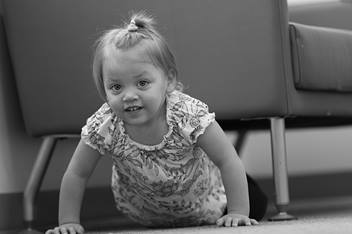Mechanical Cardiopulmonary Assist Program
The Mechanical Cardiopulmonary Assist Program (MCPAP) is part of our Cardiopulmonary Failure and Transplant Program. It provides hope to the most fragile pediatric and adult patients facing heart, lung or heart/lung transplants.
For patients experiencing cardiopulmonary failure, mechanical devices can buy much-needed time, offering a bridge to heart transplant or a bridge to recovery. These devices help the rest of the body continue to function without organ damage. Our program also provides options for an ever-growing population of patients with Adult Congenital Heart Disease (ACHD). In addition, our experts are dedicated to developing innovative ways to make life better for our patients.
Our Surgical Outcomes
The Heart Center is dedicated to providing the best possible outcomes for our patients.
Leading the Way with Expertise to Meet a Growing Need
Currently, more than 3,000 heart transplants are performed yearly. And in Ohio alone, it is projected that there will be 300 patients going into heart failure in the next year. With this growing need, our highly experienced team is the one to turn to for mechanical assist devices. Our program is unique in that it accommodates adult congenital heart patients returning later in life for additional treatment. As a result, Nationwide Children’s Hospital is home to one of the largest ACHD programs in the country.
Our Team
When it comes to our Mechanical Cardiovascular Assist Program and our Cardiopulmonary Failure and Transplant Program, it is the team that makes the programs. And ours is comprehensive. The strength of our team isn’t just the surgical acumen–it also involves the care provided in the days, weeks and months leading up to surgery, and in the management of any problems that may occur before and after surgery.
Our multidisciplinary approach includes highly experienced, specialists in cardiology, cardiothoracic surgery, anesthesiology, radiology, pulmonary, infectious disease, critical care and hematology/oncology. Conferencing twice each week, this team reviews cases and makes decisions even before a patient is transported, in order to reduce stress on that patient’s already weakened condition.
Our Partnerships
Our world-class program is enhanced by the partnerships we’ve created.
- The Richard M. Ross Heart Hospital at Wexner Medical Center at The Ohio State University is one of the nation’s largest implanters of ventricular assist devices (VAD).
- Our clinicians and researchers are working with industry partners in our MCPAP laboratory to develop, adapt and utilize a variety of mechanical assist technologies for use in our patients.
The Devices
Our surgeons have a “toolbox,” containing a full spectrum of mechanical devices, designed for short- to longterm use, in order to reduce morbidity and improve patient survival. Currently, our physicians are implanting these devices based on which one can do the most good for the patient at a particular moment in time.
- ECMO (provides short-term support of the heart and lungs)
- Extracorporeal VAD/PediMag (provides short-term support of ventricles)
- Paracorporeal VAD/Berlin Heart (provides intermediate to long-term support for infants and children)
- Intracorporeal VAD/HeartMate II (designed for long-term use in older children and adults)
- ECMV/NovaLung/Ambulatory ECMO (supports patients with isolated lung failure)
The Future
The MCPAP experts at Nationwide Children’s Hospital are dedicated to finding new ways to advance existing technologies to make them more appropriate for use in pediatric patients. The National Heart Lung and Blood Institute’s “PumpKIN,” Pumps for Kids, Infants and Neonates, will bring new devices to clinical trial in the next several years. In the meantime, our leading-edge research explores how to use these devices to make patients’ hearts stronger.
The goal remains the same–to wean patients off the mechanical assist devices and avoid transplant through recovery of the heart. With fewer transplant hearts available than ever before, and exciting advances on the mechanical device front, our patients are experiencing positive outcomes living with mechanical assist as an alternative to heart transplant.

